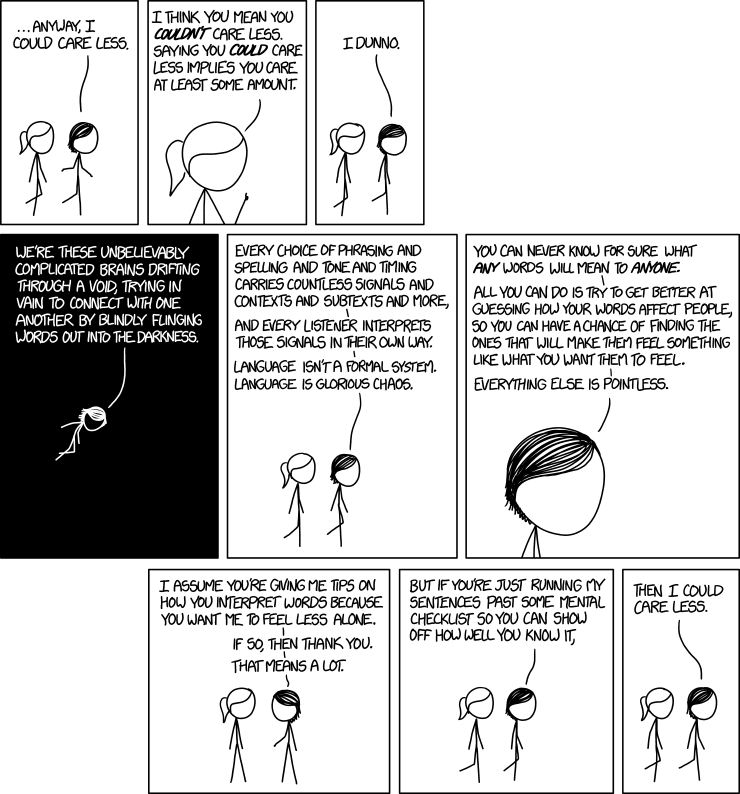I need a therapeutic disclaimer in emails and other media that goes like this:
. . . [blah blah blah] they* [blah blah blah] them* [blah blah blah] their* . . .
*Non-binary-aware, not ungrammatical.
I need this because I was raised on grammatical correction. It was how we expressed love in our family, just as many families express love by overfeeding one another, or teaching their young’uns to hunt or catch a spiral pass.
At a point slightly before I was able to consume solid food, my mother taught me — and corrected me — on the difference between “which” and “that.” If you said something was “more unique” in our household, you got a quick lecture on how the thing could be unique or not, but could not be comparatively unique because that suggested there was more than one of whatever it was. I believe my mother stopped drinking Pepsi for a while (actually, I don’t recall her ever drinking Pepsi; Fresca was her soft drink of choice) when they advertised it as “The Refreshingest!” One year, she corrected a typo in my home-made holiday card. That year was 2007.
Perhaps my favorite story, demonstrating the inter-generational quality to this bonding-through-grammar, was when — at the know-it-all age of approximately 12 — I wrote a letter to the editor of the Washington Post suggesting that some article or another was “male chauvinist.” My grandfather read it and provided this encouraging comment for my early efforts at politico-journalistic participation: “I believe the adjectival form is ‘chauvinistic.'” Seriously. I am not making that up.
I have to add, of course, that I love my mother and grandfather, and that they prepared me well for a world in which you are in fact judged on your grammar. No one taught me how to dress fashionably or wear make-up — we just weren’t a fashion-forward family

— but dammit I know how to sound edumacated.
As an act of rebellion, I became a linguistics major and basked in the glow of descriptive grammar. As an adult, I relish hearing and constructing neologisms, making prefixes and suffixes go where they have never gone before, and generally observing the way our brains interact with language when left on their own. For all of this linguistic liberation, however, I still have a very severe case of GIS: Grammatical Insecurity Syndrome.
One of the things I was taught alongside “which,” “that,” and never, ever “most unique,” is that singular verbs take singular pronouns, and that “they, them, and their” are plural pronouns. I learned to police my language for this possible mismatch, and either change the number — that is, rearrange the entire sentence to be plural rather than singular — or change the pronoun. And of course since I was a good feminist, I balked at the generic “he” and used the hell out of “he or she,” “his/hers,” etc. The random use of the generic “she” — which become popular when I was in law school in the 1980s — always seemed sort of strained to me, especially when used by male professors whose approach was otherwise pretty chauvinist . . . I mean, of course, chauvinistic.
It’s time to leave all that binary shit behind. It’s time to embrace they/them/their as singular, non-binary, pronouns. And most of all, it’s time not to care if many people think I’m just ungrammatical. As always, XKCD says it best:

Like it? Hate it? Let me know!


